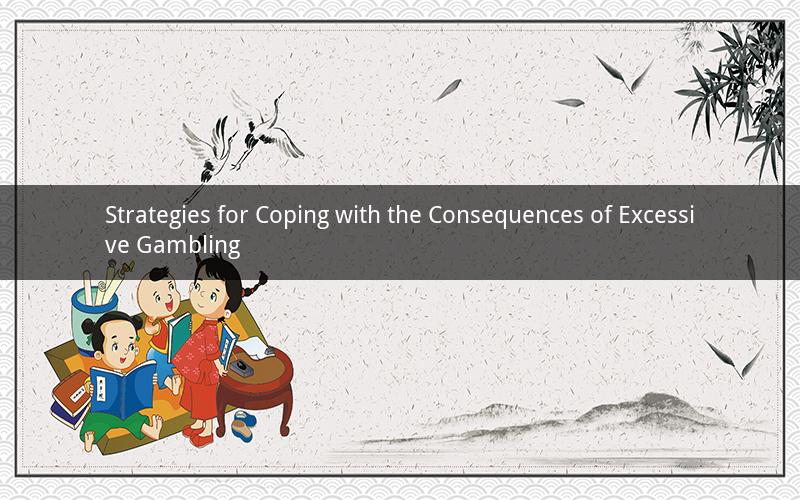
When you have gambled all your money, it can be an overwhelming and terrifying experience. The feeling of despair and helplessness can lead to severe emotional and financial consequences. However, it's essential to remember that you're not alone in this situation. In this article, we'll explore various strategies to help you cope with the aftermath of excessive gambling.
1. Acknowledge the Problem
The first step in overcoming any problem is to admit that there is a problem. Accepting that you have gambled away all your money is a crucial first step in dealing with the consequences. By acknowledging the problem, you can start to take responsibility for your actions and work towards a solution.
2. Seek Support
Don't try to deal with the aftermath of excessive gambling alone. Reach out to friends, family, or professionals for support. Sharing your experiences with someone who understands can provide comfort and guidance. You can also join support groups like Gamblers Anonymous or find a therapist specializing in gambling addiction.
3. Create a Budget
Now that you have faced the reality of your financial situation, it's time to create a budget. A budget will help you manage your finances, prioritize expenses, and set goals for regaining control of your financial life. Make sure to include necessary expenses, such as rent, utilities, groceries, and transportation.
4. Find Alternative Sources of Income
While recovering from excessive gambling, it's essential to find alternative sources of income to rebuild your financial stability. This could include part-time jobs, freelance work, or even starting a small business. By diversifying your income, you'll be better equipped to handle unexpected expenses and maintain a sense of financial security.
5. Avoid High-Risk Situations
To prevent falling into the same trap again, it's crucial to avoid high-risk situations that could lead to further financial trouble. This may involve staying away from casinos, lottery stores, or any other places where gambling is easily accessible. Additionally, consider blocking access to online gambling websites to minimize the temptation.
6. Focus on Self-Care
Dealing with the aftermath of excessive gambling can be emotionally and physically draining. It's important to prioritize self-care during this time. Engage in activities that promote relaxation and well-being, such as exercise, meditation, or hobbies. Maintaining a healthy lifestyle can help you stay focused on your recovery journey.
7. Establish a Support System
Surround yourself with a strong support system of individuals who are committed to helping you overcome your gambling addiction. This could include family members, friends, or professionals who have experience in dealing with gambling addiction. Remember, you're not alone in this battle.
8. Learn from Your Experience
Use your experience as a learning opportunity to grow and improve. Reflect on the factors that contributed to your gambling addiction and identify ways to prevent future relapses. By understanding the root causes of your addiction, you can work towards long-term recovery.
9. Develop Coping Skills
Learn new coping skills to deal with triggers and cravings for gambling. Techniques such as mindfulness, cognitive-behavioral therapy, and problem-solving can help you navigate the challenges of recovery. These skills will not only help you avoid relapse but also improve your overall well-being.
10. Stay Committed to Recovery
The road to recovery from excessive gambling can be long and challenging. It's essential to remain committed to your recovery journey, even during difficult times. Celebrate small victories and don't be discouraged by setbacks. With persistence and determination, you can overcome the consequences of excessive gambling and rebuild your life.
Questions and Answers:
1. Q: How can I tell if I have a gambling addiction?
A: If you find yourself consistently losing money while gambling, experiencing mood swings, lying about your gambling habits, or feeling the urge to keep gambling despite negative consequences, you may have a gambling addiction.
2. Q: What should I do if I'm unable to pay my bills due to excessive gambling?
A: If you're struggling to pay your bills, contact your creditors immediately and explain your situation. They may offer temporary solutions like payment plans or extensions to give you time to recover.
3. Q: Can I recover from a gambling addiction on my own?
A: While it's possible to recover from a gambling addiction on your own, seeking support from friends, family, or professionals can significantly improve your chances of long-term recovery.
4. Q: How long does it take to recover from a gambling addiction?
A: The duration of recovery from a gambling addiction can vary from person to person. Some may recover within a few months, while others may need years of continuous effort and support.
5. Q: Is there a cure for gambling addiction?
A: There is no definitive cure for gambling addiction, but it can be effectively managed through therapy, support groups, and lifestyle changes. With commitment and determination, many individuals have successfully overcome their gambling addiction.